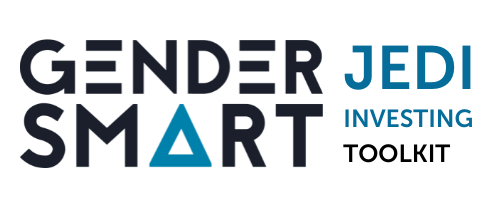Illinois State Treasurer's Office Standardized Due Diligence Questionnaire
Illinois State Treasurer's Office Sustainability/Equity/Diversity and Inclusion Standardized Due Diligence Questionnaire
ILPA Standardized Due Diligence Questionnaire
ILPA Standardized Due Diligence Questionnaire for institutional investors.
The Questions LPs Can Ask for Due Diligence on Diversity and Inclusion in VC
From Diversity VC: A list of questions which Limited Partners can use to ask GPs at venture funds during the due diligence process to better understand their approach to diversity and inclusion. The first set of questions is taken from the ILPA guidance, the second has been compiled by Diversity VC in discussions with GPs and LPs in Europe and the US.
Illinois State Treasurer's Office Sustainability Investment Policy Statement
Illinois State Treasurer's Office Sustainability Investment Policy Statement
Guiding the Equality Fund's Investment Strategy Part 2 (From Playbook: Investing in Gender Equality)
Forming bridges amongst feminist activists and economists and allies with gender-lens investment expertise, part of a six-part blog series that explores why and how an investment program is an essential part of the Equality Fund’s work to shift power to women, youth, girls, and non-binary people around the world. Through the lens of six “P”s (Purpose, People and Partners, Perspectives, Process, Philosophy and Products), the Equality Fund shares their approach to gender-lens investing and illuminate the values, strategy, and structure that guide it.
van Ameringen Foundation Investment Policy Statement
van Ameringen Foundation Investment Policy Statement
Investor Statement of Solidarity to Address Systemic Racism and Call to Action
From Racial Justice Investing: Long-term investors' and financial service providers' commitment to action and accountability to achieve racial equity.
NorthLight Foundation Investment Policy Statement
NorthLight Foundation Investment Policy Statement
Canadian Investor Statement on Diversity & Inclusion
From Responsible Investment Association Canada: Signatory investors encourage Canadian public companies to lead in global efforts to address systemic inequities by advancing diversity and inclusion efforts and enhancing transparency and accountability, as well as challenge their own institutions to advance diversity and inclusion of underrepresented individuals within their organisations.
Racial Equity Investing: The Time Is Now
This report from Cambridge Associates discusses the renewed sense of urgency around racial equity investing and puts forward three actions investors can take to address the inequities inherent in our society.
Adasina Social Justice Investment Criteria
The data-driven set of standards that guides Adasina's investment strategies to reflect social justice values and advance progressive movements for change.
How Can Investors Help Confront Racial Injustice?
This impact brief from Zevin Asset Management is an update of their original call to action and a review of their continuing work to build an awareness of racial justice into investment — both as an analytical lens and an economic reality. Doing so helps to protect the value of their portfolios and channel their clients’ voices to help create positive change.
Rockefeller Brothers Fund Investment Policy Statement
Rockefeller Brothers Fund Investment Policy Statement
Integrating Racial Equity into Total Portfolio Activation
This paper offers a synopsis of the evolution from community development and ESG investing to the emergence of investing explicitly with a racial equity lens, proposes a definition for racial equity investing, and presents emerging opportunities across asset classes for investors. This report is supported by the Nathan Cummings Foundation & Trillium Asset Management.
Racial Inequality is a Business Risk
The events of 2020 drew heightened attention in corporate America to the issue of economic inequality. Following the protests across the United States sparked by the murder of George Floyd at the hands of Minneapolis police officers, nearly half of the companies in the S&P 500 issued public statements denouncing discrimination or pledging a review of policies and practices related to diversity and inclusion, according to an S&P Global Ratings report. Simply recognizing the problems of racism and inequality, however, is not enough. The private sector can play a leading role in addressing social issues, and investors can help lead the charge. Investors should integrate the risk posed by economic inequality into their investment decision-making and hold portfolio companies accountable for addressing this critical issue. Inaction on these fronts can have financially material effects that undermine corporate value and threaten fund performance.
Narrowing the Gap: Why Long-Term Investors and Corporate Leaders Should View Addressing Economic Inequality and Improving Diversity as Critical Forms of Risk Management
From Ariel Investments: This paper is designed to help investors understand the urgent need to address economic inequality and provide corporate leadership teams practical steps to drive change within their companies and for society at large. Drawing on Ariel Investment’s work with the Black Corporate Directors Conference, the authors outline actions relating to people, purchasing, and philanthropy that companies can take to leverage corporate influence.
Think racial and ethnic diversity is better in impact and ESG investing? Think again...
In this article from Responsible Investor, Paul Hodgson explores the progress being made on diversity and inclusion in the sustainability world.
Action for Racial Equity
In 2020, Citi and the Citi Foundation announced Action for Racial Equity, a comprehensive set of strategic initiatives that harness the core capabilities of each institution to help close the racial wealth gap in the U.S. The intiative's website provides updates and key statistics.

